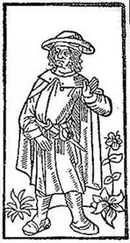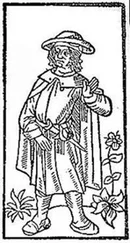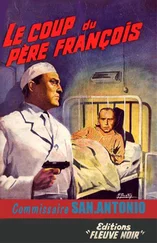François Fénelon - Fenelon's Treatise on the Education of Daughters
Здесь есть возможность читать онлайн «François Fénelon - Fenelon's Treatise on the Education of Daughters» — ознакомительный отрывок электронной книги совершенно бесплатно, а после прочтения отрывка купить полную версию. В некоторых случаях можно слушать аудио, скачать через торрент в формате fb2 и присутствует краткое содержание. Издательство: Иностранный паблик, Жанр: foreign_antique, foreign_prose, на английском языке. Описание произведения, (предисловие) а так же отзывы посетителей доступны на портале библиотеки ЛибКат.
- Название:Fenelon's Treatise on the Education of Daughters
- Автор:
- Издательство:Иностранный паблик
- Жанр:
- Год:неизвестен
- ISBN:нет данных
- Рейтинг книги:4 / 5. Голосов: 1
-
Избранное:Добавить в избранное
- Отзывы:
-
Ваша оценка:
- 80
- 1
- 2
- 3
- 4
- 5
Fenelon's Treatise on the Education of Daughters: краткое содержание, описание и аннотация
Предлагаем к чтению аннотацию, описание, краткое содержание или предисловие (зависит от того, что написал сам автор книги «Fenelon's Treatise on the Education of Daughters»). Если вы не нашли необходимую информацию о книге — напишите в комментариях, мы постараемся отыскать её.
Fenelon's Treatise on the Education of Daughters — читать онлайн ознакомительный отрывок
Ниже представлен текст книги, разбитый по страницам. Система сохранения места последней прочитанной страницы, позволяет с удобством читать онлайн бесплатно книгу «Fenelon's Treatise on the Education of Daughters», без необходимости каждый раз заново искать на чём Вы остановились. Поставьте закладку, и сможете в любой момент перейти на страницу, на которой закончили чтение.
Интервал:
Закладка:
François de Salignac de La Mothe- Fénelon
Fenelon's Treatise on the Education of Daughters / Translated from the French, and Adapted to English Readers
The Translation of the following Work was undertaken at the request of Mr. Ruff, the Publisher, who wished me to paraphrase what I thought might more particularly interest and edify the English reader.
It is dedicated, by the Publisher, to her Grace the Duchess of Bedford – and he is anxious that it may be found worthy of her patronage.
The original French work was first published in 1688; and the earliest English translation appeared in 1707. This translation, which was by Dr. Hickes, I have never seen. In the year 1797, another [anonymous] English translation was printed at Hull, in a duodecimo volume. In this performance there is so close an adherence to the idiom of the French language, that almost every page abounds with gallicisms. It is not, however, entirely destitute of merit; but it appears, on the whole, to have been hastily executed for the purpose of ensuring a cheap and extensive sale.
The present translation is offered to the public, with a full conviction of its inadequacy to give a just idea of the beauty and force of the original. The author of " Telemaque " and " De l'Education des Filles " appears, on a comparison of these two performances, very unlike the same writer. In the former, his periods are flowing and luxuriant; in the latter, they are sententious and logical; and nearly as difficult to clothe in an English-dress as those of the philosophical Tacitus.
It will be seen, therefore, that a literal translation has not been attempted; and a still greater deviation will be observable, from a wish to distinguish it from the translation of 1797. Whether this has always been done for the better, the reader will determine for himself.
The Original Chapter "on religious studies" has been submitted to those, whose opinions, matured by experience, I have been anxious to obtain; and it has received the sanction of their approbation.
If the Work fail of success, it will not be from the want of spirit in the Publisher; for it is accompanied with considerable beauty of type and paper, and elegance of ornament.
The design is every way worthy of the ingenious artist by whom it was executed, and who has long been known to the world from the taste and fidelity of his pencil. The engraving, by Mr. Freeman, will convince the public that he requires only to be known, to be more generally encouraged.
T. F. D.Terrace, Kensington,
June 2, 1805 .
CHAPTER I
The Education of Girls is, in general, exceedingly neglected: 1 1 It must be remembered that the above sentiment was expressed in the year 1688, when the want of a good system of female education was universally felt and regretted. At the present day, we witness a noble reverse of things; and whatever theories may have, been proposed abroad, we can never cease to admire the labours, and applaud the sagacity, of our countrywomen in behalf of their sex.
custom, and maternal caprice, often appear to have the entire regulation of it. It absolutely seems as if we supposed the sex to be in need of little or no instruction. On the other hand, the Education of Boys is considered as a very important concern, affecting the welfare of the public; and although it be frequently attended with errors and mistakes, great abilities are nevertheless thought necessary for the accomplishment of it. The brightest talents have been engaged to form plans and modes of instruction: – What numbers of masters and colleges do we behold? What expences incurred in the printing of books, in researches after science, in modes of teaching languages, in the establishment of professors? All these grand preparations may probably have more shew than substance, but they sufficiently denote the high idea we entertain of the education of Boys. In regard to Girls, some exclaim, "why make them learned? curiosity renders them vain and conceited: it is sufficient if they be one day able to govern their families, and implicitly obey their husbands!" Examples are then adduced of many women whom science has rendered ridiculous; and on such contemptible authority we think ourselves justified in blindly abandoning our daughters to the conduct of ignorant and indiscreet mothers.
It is true, that we should be on our guard not to make them ridiculously learned. Women, in general, possess a weaker but more inquisitive mind than men; hence it follows that their pursuits should be of a quiet and sober turn. They are not formed to govern the state, to make war, or to enter into the church; so that they may well dispense with any profound knowledge relating to politics, military tactics, philosophy, and theology. The greater part of the mechanical arts are also improper for them: they are made for moderate exercise; their bodies as well as minds are less strong and energetic than those of men; but to compensate for their defects, nature has bestowed on them a spirit of industry, united with a propriety of behaviour, and an economy which renders them at once the ornament and comfort of home. 2 2 This idea is beautifully expressed in the following lines of Thomson: — "To give society its highest taste, Well-ordered home man's best delight to make; And by submissive wisdom, modest skill, With every gentle care-eluding art To raise the virtues, animate the bliss, And sweeten all the toils of human life: This be the female dignity and praise!" Autumn , ver. 602-608.
But admitting that women are by nature weaker than men, what is the consequence? What, but that the weaker they are, the more they stand in need of support. Have they not duties to perform, which are the very foundation of human existence? Consider, it is women who ruin or uphold families; who regulate the minutiæ of domestic affairs; and who consequently decide upon some of the dearest and tenderest points which affect the happiness of Man. They have undoubtedly the strongest influence on the manners, good or bad, of society. A sensible woman, who is industrious and religious, is the very soul of a large establishment, and provides both for its temporal and eternal welfare. Notwithstanding the authority of men in public affairs, it is evident, that they cannot effect any lasting good, without the intervention and support of women.
The world is not a phantom, it is the aggregate of all its families ; and who can civilize and govern these with a nicer discrimination than women? besides their natural assiduity and authority at home, they are peculiarly calculated for it, by a carefulness, attention to particulars, industry, and a soft and persuasive manner. Can men promise themselves any felicity in this life, if marriage, the very essence of domestic society, be productive of bitterness and disappointment? and as to children, who are to constitute the future generation, to what misery will they be exposed, if their mothers ruin them from the cradle?
Such then, are the occupations of the female sex, which cannot be deemed of less importance to society than those of the male. It appears that they have a house and establishment to regulate, a husband to make happy, and children to rear. Virtue is as necessary for men as for women; and without entering upon the comparative good or ill which society experiences from the latter sex, it must be remembered that they are one half of the human race , redeemed by the blood of Jesus Christ, and destined to life eternal.
Lastly, let us not forget that if women do great good to the community when well educated, they are capable of infinite mischief when viciously instructed. It is certain that a bad education works less ill in a male, than in a female breast; for the vices of men often proceed from the bad education which their mothers have given them, and from passions which have been instilled into them at a riper age, from casual intercourse with women.
Читать дальшеИнтервал:
Закладка:
Похожие книги на «Fenelon's Treatise on the Education of Daughters»
Представляем Вашему вниманию похожие книги на «Fenelon's Treatise on the Education of Daughters» списком для выбора. Мы отобрали схожую по названию и смыслу литературу в надежде предоставить читателям больше вариантов отыскать новые, интересные, ещё непрочитанные произведения.
Обсуждение, отзывы о книге «Fenelon's Treatise on the Education of Daughters» и просто собственные мнения читателей. Оставьте ваши комментарии, напишите, что Вы думаете о произведении, его смысле или главных героях. Укажите что конкретно понравилось, а что нет, и почему Вы так считаете.












